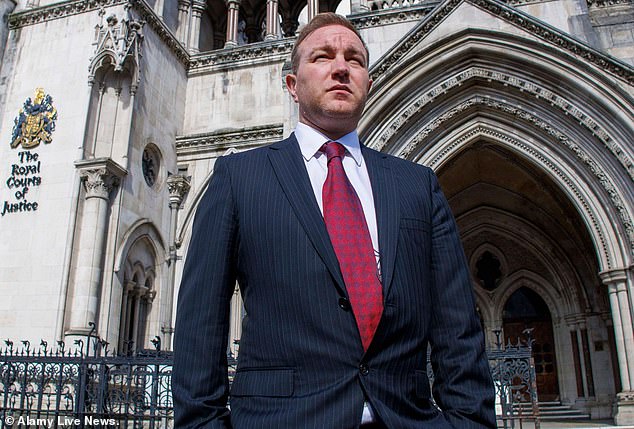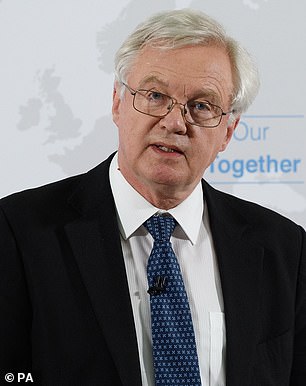<!–
<!–
<!– <!–
<!–
<!–
<!–
Convicted Libor trader Tom Hayes has vowed to fight on to clear his name after losing his appeal against conviction.
Hayes, who was jailed in 2015 for manipulating the Libor benchmark rate, will now seek to take his case to the Supreme Court.
The former Citigroup and UBS trader claims he has been made a scapegoat for the financial crisis.
After yesterday’s ruling at the Court of Appeal, he said: ‘I am a fighter, not a quitter.’
His supporters include Tory MP David Davis, who said the case was a “continuing miscarriage of justice”.

Confirmed: Tom Hayes (pictured), who was jailed in 2015 for manipulating the Libor benchmark rate, has lost his appeal against conviction
Hayes said he still wanted “the opportunity to be exonerated and move on with my life.” He added: ‘It would be the opportunity for my son to have a father who no longer has a criminal conviction. I didn’t fight all these years in vain.’
And he called the courts’ approach – compared to other countries – an ‘Alice in Wonderland situation’.
His latest appeal – and that of former Barclays trader Carlo Palombo – came after a landmark case in the US that overturned the convictions of two former Deutsche Bank traders.
The case was heard by Lord Justice Bean and two other senior judges.
Hayes occasionally shook his head and later put his head in his hands as Bean read the verdict, following a hearing this month.
The judge said the US case “is not and cannot be relevant” in assessing the issues.
He rejected a further claim that the jury had been misdirected by the judge.
Bean said “indisputable evidence” showed that Hayes attempted to change the Libor rate “accompanied by attempts to maintain secrecy” while making “frank admissions of dishonesty.”
“Both clearly implied that he knew what he was doing was not permitted by Libor,” the judge said.
Hayes’ case centers on the London interbank rate (Libor), which was once used to price trillions of dollars’ worth of financial transactions worldwide.
The rate, which has since been abolished, was calculated based on comments from traders about the rate at which banks would lend to each other.
Hayes and Palombo were accused of dishonestly conspiring with others to manipulate interest rates to benefit their banks’ trading positions.


Support: Tory MP David Davis said case was a ‘continuing miscarriage of justice’
Hayes was jailed for fourteen years in 2015, later reduced to eleven years on appeal, and served half his sentence. Palombo was sentenced to four years in prison. They were among nine people convicted in Britain.
Outside court, Hayes said the verdict was a shock. “We really believed and hoped that the decision would be different,” he said. ‘I thought we had very strong arguments.
“It’s not in accordance with French laws, German laws, American laws. We’re in a kind of Alice in Wonderland situation here.’
He said that even if the judges do not allow the case to proceed to the Supreme Court, he could pursue it in Europe, adding: “We have not given up.
‘The idea that you can sit in America and do something that would be considered criminal in Britain is insane.’
Of his first sentence, he said: “I was absolutely a scapegoat and given a punishment that destroyed my life in almost every respect.”
Davis, a former Tory minister, said there is a “spectacular difference in law” over the treatment of Libor between Britain and America and Europe that “must be resolved at the highest level, namely in the Supreme Court”.
He added: ‘I think the US court understands this market better than the UK judges. “I’m afraid I think it’s a continued miscarriage of justice.”
The Serious Fraud Office said: ‘The judgment makes clear that these fraud convictions are still as relevant today as they were ten years ago.
“No one is above the law and the court has recognized that these convictions stand.”
Hayes and Palombo have 14 days to apply for leave to appeal to the High Court.

